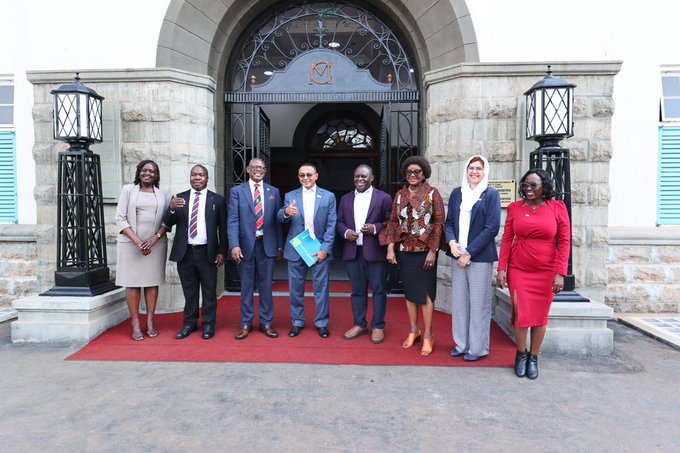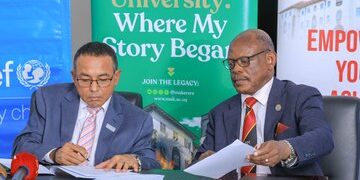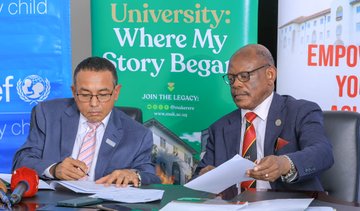Makerere University and the United Nations Children’s Fund (UNICEF) Uganda have signed a Memorandum of Understanding (MoU) that cements a new strategic partnership to advance child rights and well-being through research, innovation, capacity building, and policy advocacy.
The two-year renewable agreement was signed by Makerere University Vice Chancellor, Prof. Barnabas Nawangwe, and UNICEF Uganda Representative, Dr. Robin Nandy, at the university’s Main Building. It will focus on strengthening evidence-based policy and program design to improve the lives of children in Uganda, while contributing to the achievement of the Sustainable Development Goals (SDGs) by 2030.
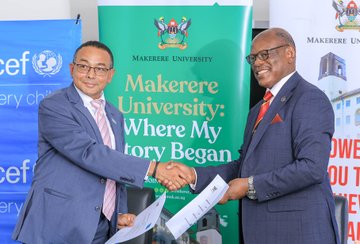
Under the MoU, Mak and UNICEF will collaborate on a wide range of initiatives, including conducting child-focused academic research and generating data to inform national policies and programs, analysing child-related interventions in health, nutrition, education, and protection and professionalising the social sector workforce through training, curriculum development, and performance standards.
Others include: developing and evaluating interventions to enhance children’s well-being and fulfill their rights, strengthening knowledge management and sharing findings with policymakers and practitioners, advocating for policies and legislation that promote child rights, nurturing child rights champions within the Makerere community and engaging students through internships, skills training, and communities of practice.
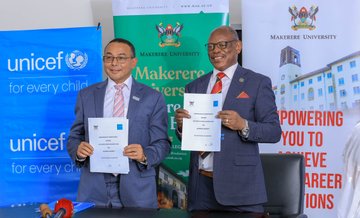
A Long-Standing Collaboration
The agreement builds on decades of cooperation between UNICEF and Makerere University, particularly through the College of Health Sciences and the School of Public Health. Since 2016, the partnership has delivered more than 25 projects addressing adolescent health, nutrition, newborn and maternal care, disease prevention, and health systems strengthening.
“In the last decade alone, Makerere has undertaken over 30 UNICEF-supported research projects,” Prof. Nawangwe noted. “At Makerere, our commitment is to produce research and innovations that directly impact communities. This MoU will ensure our expertise helps shape policies and solutions that safeguard Uganda’s future, especially its children.”
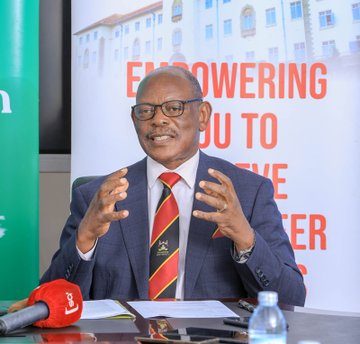
The Vice Chancellor also highlighted collaborations between UNICEF and the School of Statistics and Planning, including a recent socio-economic impact assessment of the 2022 Ebola Virus Disease outbreak in Mubende and Kassanda. “That study gave us critical insights into how public health emergencies disrupt livelihoods, education, and wellbeing — and informed the policies to build resilience,” he said.
A Shared Vision for Children
Dr. Nandy emphasised UNICEF’s commitment to partnering with academic institutions to address the country’s most pressing challenges for children.
“No single organisation can solve all the challenges children face,” he said.
“This partnership will generate evidence, nurture child rights champions, and professionalise the social workforce. It will combine Makerere’s academic excellence with UNICEF’s practical experience to address issues such as early marriage, teenage pregnancy, poor nutrition, and the marginalisation of vulnerable children.”
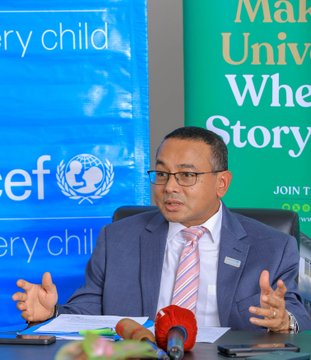
He stressed that these problems demand a multi-sectoral approach, rigorous evidence, and innovative solutions. “This is the beginning of a long-term collaboration aimed at delivering tangible change for children and communities across Uganda,” Dr. Nandy added.
Addressing Adolescent Health and Socio-Cultural Barriers
Prof. Rhoda Wanyenze, Principal of Makerere University School of Public Health, described the agreement as a milestone in a partnership that has already produced impactful results.
“About ten years ago, with UNICEF’s support, we established the Child Health Unit at the Centre of Excellence,” she recalled. “Since then, we have jointly implemented more than half of our projects at the School of Public Health with UNICEF. Adolescent health, especially reducing teenage pregnancies and early marriages, remains a big challenge in Uganda — one we are determined to tackle together.”
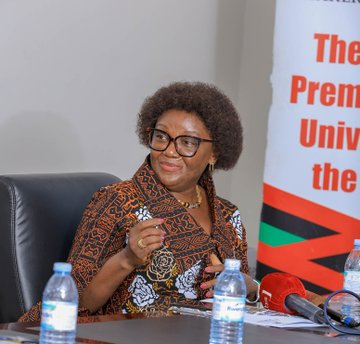
Prof. Wanyenze stressed the importance of a multidisciplinary approach: “When we talk about teenage pregnancies, it is not merely a medical issue — it is a socio-cultural challenge. That is why we are bringing in colleagues from humanities, education, food science, and other fields to find lasting solutions.”
Both institutions affirmed that the MoU will serve as a framework for scaling up joint projects, fostering innovation, and preparing the next generation of leaders in child rights advocacy.
“This is about making sure that every child in Uganda has the opportunity to thrive,” said Prof. Nawangwe. “And for that, we need the best of both worlds — academic rigour and practical action.”
